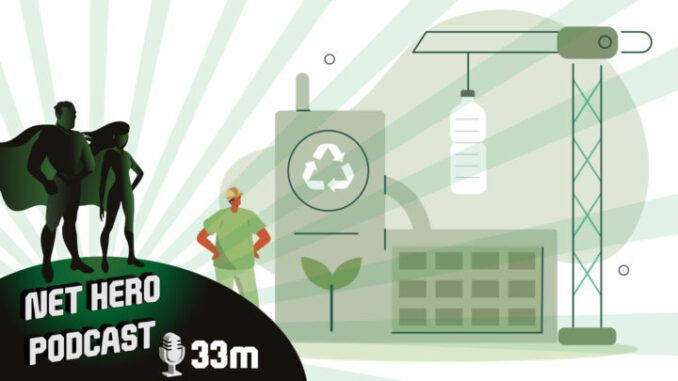
We need a uniform rubbish collection system so there’s no confusion.
This is what Adela Putinelu, Head of Policy and Sustainability at Plastic Energy, said in this week’s Net Hero Podcast.
‘It’s really confusing for the consumers and that is the first thing that we need to think about and change.
‘Because in reality, consumers don’t really need to understand all of these very complicated issues around the production process, around the use life, around the environmental impact.
‘What they do need to understand is what to do with the plastic that they use at the end of life.
‘And that’s where the rules should be quite clear for the consumer to be able to adopt and be incentivised to do the right thing.
‘Because the more complicated you make it for the consumer, the more you’re not going to get the behaviour that you want to get from the consumers.’
She told us that there are several reasons why recycling infrastructure and policy continues to be a struggle.
‘Consumers in the past have not been incentivised to adopt the right behaviours. Quite frankly, governments have not been made enough of an effort to make [recycling] a part of policy.
‘Businesses, too, haven’t been proactive at all. So it’s really a combination of all of these factors.
‘But I think the landscape is very quickly changing and that’s very good to see.’
Adela said that certain plastics such as crisp packets don’t get recycled at all.
‘Polyethylene, polypropylene, the sort of stuff that’s mainly plastic, flexible films, packaging, crisp packets, plastic bags, things like that.
‘These at the moment, are not recycled at all.
‘Mechanical recycling doesn’t really deal with it. It ends into incineration landfill.
‘So, in broad terms, mechanical recycling does not change the chemical structure of the polymeric waste.
‘Whereas chemical recycling does exactly that. So the polymeric waste gets transformed into a hydrocarbon oil. So you sort of switch back the chemistry a little bit to go back to some of its component chemical structures.
‘So you obtain a hydrocarbon oil and the way you obtain this is by heating the plastic waste in the absence of oxygen to obtain this hydrocarbon oil.
‘And this is what [Plastic Energy] has been doing. We provide a solution for plastic waste that has no solution to be recycled at present time and by doing this we’re displacing the use of virgin oils in the production of plastic.’
Watch the full episode below and don’t forget to subscribe to our newsletter.
The post We need to uncomplicate recycling for the consumer, says plastic expert appeared first on Energy Live News.
